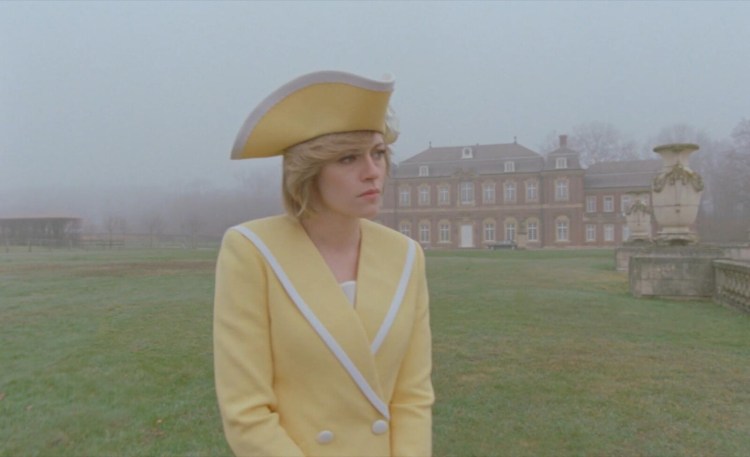Princess Diana may be gone, but she’s never really left the left the public eye. One of the more recent examples came by way of Season 4 of “The Crown,” the popular Netflix series that, since 2016, has succeeded in portraying the humanity of Britain’s royals – in all their shades of gray – while linking the institution of the monarchy to the fears and desires of us commoners.
With the latest screen portrait of Diana, it’s best to get one thing clear up front: “Spencer,” for the most part, doesn’t probe for those same moments of connection with the House of Windsor. The cinematic portrait of the titular Diana Spencer by director Pablo Larraín (“Jackie”) is best approached with a healthy skepticism. To wit: Royals are nothing more than cruel, privileged aliens whose spirits still haunt the Earth, long after they ever sought to have dominion over it.
In the hands of Larraín, working from a screenplay by Steven Knight (“Locke”), and starring actress Kristen Stewart, who inhabits the title role, the story comes at its protagonist as if she were trapped in “The Shining’s” Overlook Hotel.
The actual setting of “Spencer” is 1991, Sandringham Estate, the queen’s Christmas retreat, where Diana has reached a breaking point, not just because of Charles’s infidelity, but because of the strains of tradition and obligation.
(Any viewer looking for a faithful historical reenactment will probably recoil at the film’s opening on-screen title: “A fable from a true tragedy.”)
Stewart sinks her teeth into the role of a woman tortured, isolated and confined. As she demonstrated in the art-house film “Personal Shopper,” the actress does “haunted” very well. Here, her highly attuned performance is not just in evoking Diana’s expressive eyes, but her physicality, stomping – or tiptoeing – around the grand hallways and lush grounds of an estate she’ll never call home. For a film with a fair amount of gloss, “Spencer” handles Diana’s battles with bulimia and self-harm through some capably startling and effective bits of body horror.
The score by Jonny Greenwood of Radiohead – discordant piano and creeping, lounge-y jazz trumpets – nicely evokes Diana’s eroding mental state, and is likely to keep you just as off-kilter as the film’s subject.
Larraín’s experience with “Jackie,” another glimpse into the mind of an alienated woman in the spotlight, serves him well here. As with that 2016 film, themes of mythmaking and identity – what happens when your sense of self is subsumed by the greater good? – come under the microscope. The film is notable for not glamorizing the aristocracy. Instead, Larraín and cinematographer Claire Mathon direct your attention to the workers who uphold the fairy tale.
Diana’s few allies include her dresser (Sally Hawkins) and a chef (Sean Harris). Timothy Spall, as the Windsors’ equerry, in charge of the royal household, and Diana’s newfound nemesis, appears to lurk around every corner, watching and listening.
But if “Spencer” has style and performance in spades, those strengths aren’t matched by the film’s screenplay, which is both overly on-the-nose and peppered with metaphors about wild horses needing to be set free, or a pheasant, described as a beautiful bird fit only for hunting. A subplot in which the ghost of Anne Boleyn (beheaded by Henry VIII) acts as Diana’s spirit guide doesn’t help matters. Knight keeps dropping foreshadowing reminders of the princess’s untimely demise – as if anyone has forgotten.
Some of the film’s quieter passages, focusing on Diana’s body, feels like an ad for Chanel No. 5.
Yet mostly, it all works. Maybe that’s because the burden of celebrity is so insane, so vapid that it can only be expressed through melodrama – through vibes. Compared with biopics that sand off rough edges, perpetuating a subject’s deification, it’s refreshing to watch a film that isn’t afraid to get messy. For better and for worse, “Spencer” conveys one thing quite powerfully: the feeling of living in a rarefied, indifferent world that doesn’t seem to value independent women, much less people.
Send questions/comments to the editors.



Comments are no longer available on this story